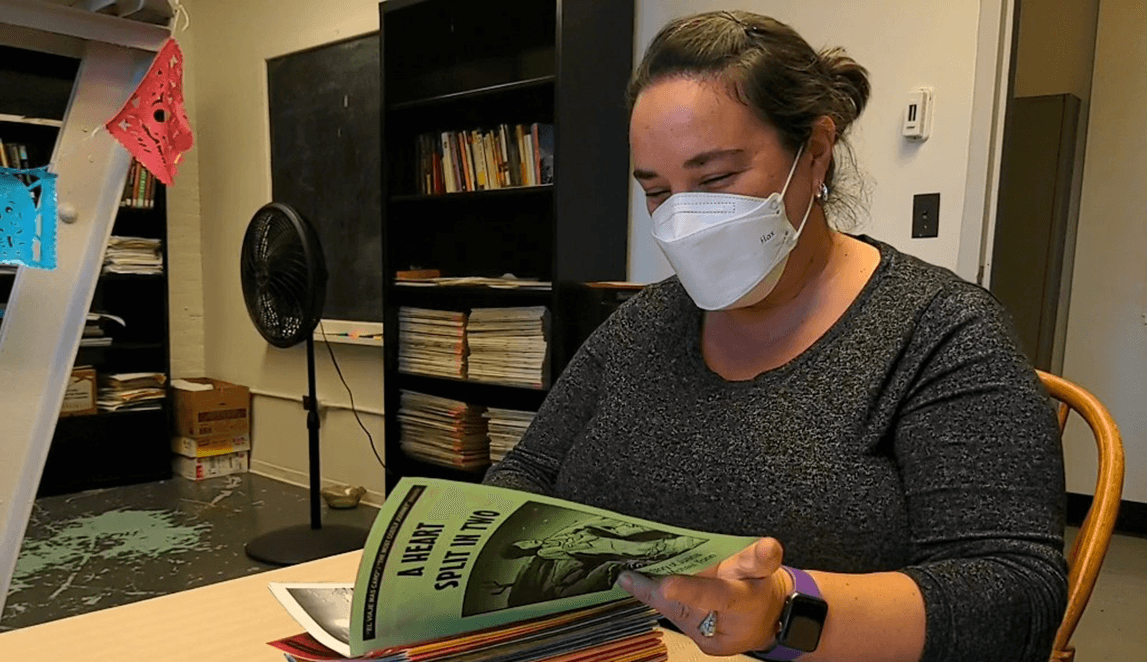Beneath Vermont’s idyllic dairy farms lies a hidden population that helps to sustain the industry — and people can read about these workers in a nonfiction comics anthology created with the help of a UVM professor.
“The Most Costly Journey,” published earlier this year, binds together almost 20 comic books illustrated by New England artists that tell the true stories of Latin American migrants who work Vermont’s farms.
Between 1,000 and 1,200 of those workers live and work here, and an estimated 90% of them are undocumented, Department of Anthropology professor Teresa Mares writes in the afterword of the book, which she co-edited.
In an overwhelmingly white border state, Mares said, these workers are uniquely isolated and face formidable challenges.
“Our food system is entirely propped up by the labor of workers from outside of this country,” said Mares, an expert on the intersection of food and migration studies. “Despite that dependency, people are not aware of what their experiences have been … moving into the U.S. or working in the U.S.”
“The Most Costly Journey” came from a moment of serendipity. About five years ago, Mares was conducting food insecurity at the Open Door Clinic, a health care provider in Addison County that helps uninsured and underinsured people, including many migrant workers. One day, clinic nurse Julia Grand Doucet presented Mares with an idea: using comics to help migrant farmworkers cope with the mental impact of leaving home to work in a distant place. In Latin America, Mares said, cartoons are a popular way for people to learn and share information, and the books could capture the experiences of the workers visiting the clinic.
The same day, Doucet invited Mares to interview a young farmworker in the clinic. He used the phrase “most costly journey” when describing how he crossed the border to come to the U.S.
“From there, it just kind of spiraled”, Mares said. Mares and Doucet enlisted the help of the Vermont Folklife Center, Marek Bennett’s Comics Workshop, UVM Extension and the Vermont Community Foundation. Collaborators conducted interviews, sometimes by Spanish speakers and sometimes through a translator. Cartoonists from across New England brought to life each person’s story, consulting with the workers to make sure they were getting every detail right.
Originally distributed in Spanish among migrant worker communities, the short comic books paired local artists with immigrant workers to bring their experiences to life. They acted as resources for workers far from home: Some could take solace in sharing their experiences, while others could find community in reading about those of their peers. The comics delved into issues of domestic violence and substance abuse, too.
But Mares and others knew the comics had even greater potential.
“We realized that it’s a really powerful tool for educating English-speaking people about the experiences of farmworkers in the state,” Mares said. “We realized that having an English version of the book was really just an exciting opportunity.”
So began an effort to publish the comics as an English-language anthology. The team put together most of the volume between 2016 and 2018, and after a long search for a publisher, they saw it published in May.
Many students in elementary, middle, and high school today will have been assigned to read graphic novels in school. The medium, Mares said, lends itself to conveying stories in the humanities.
“Ethnography is essentially a tool used to understand the lives of other people,” said the professor, who teaches courses on food systems, anthropology, labor and Latinos in the U.S. “Cartooning is also possible to use in that way. So there’s a rich, emerging body of work using ethnographic cartooning as another way of telling stories.”
“The Most Costly Journey” has been finished, but Mares continues her work in ongoing research projects, some of which also involve Vermont’s migrant workers. “One of the collective interests we have as a team”, Mares said, “is making visible the humanity of these people.”
With the comics anthology and her research, she hopes to make that happen.
